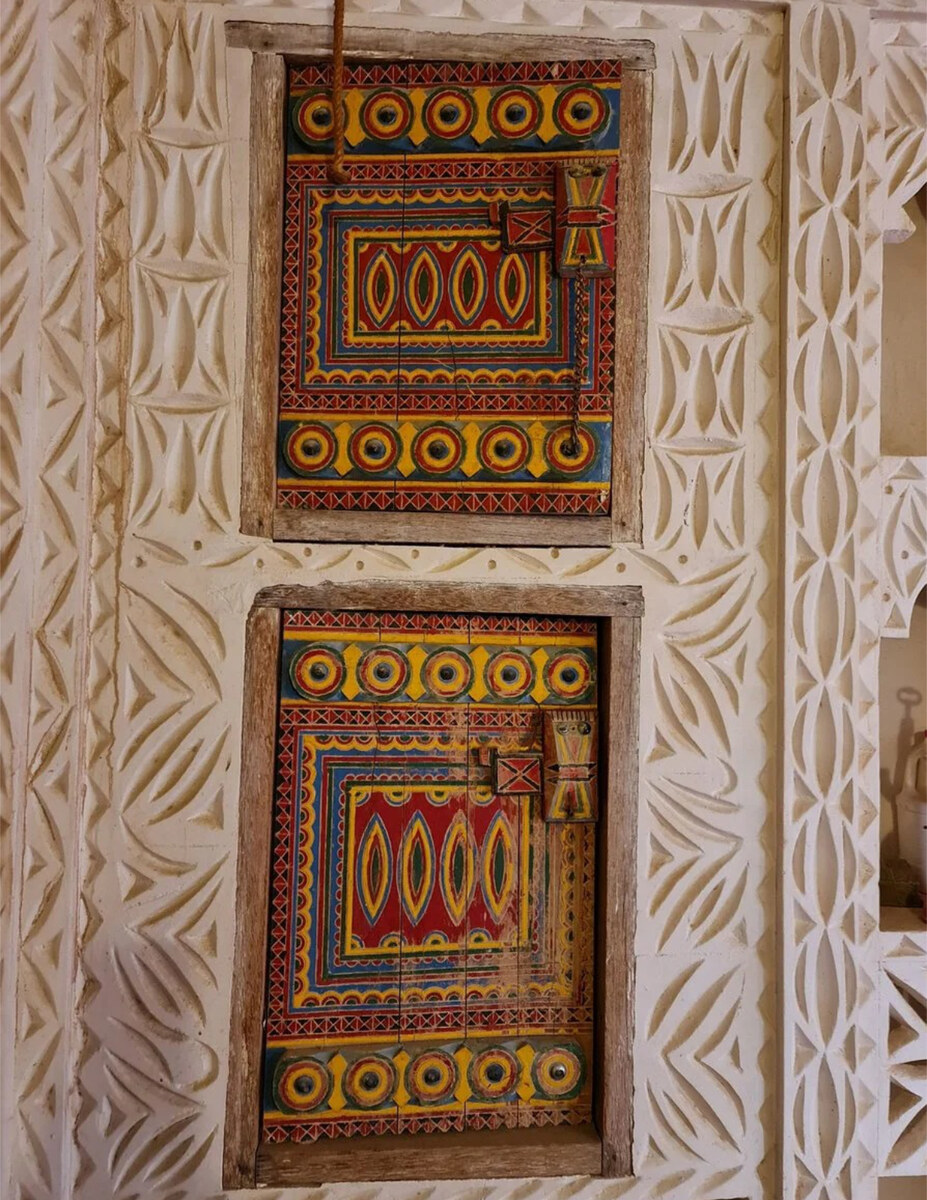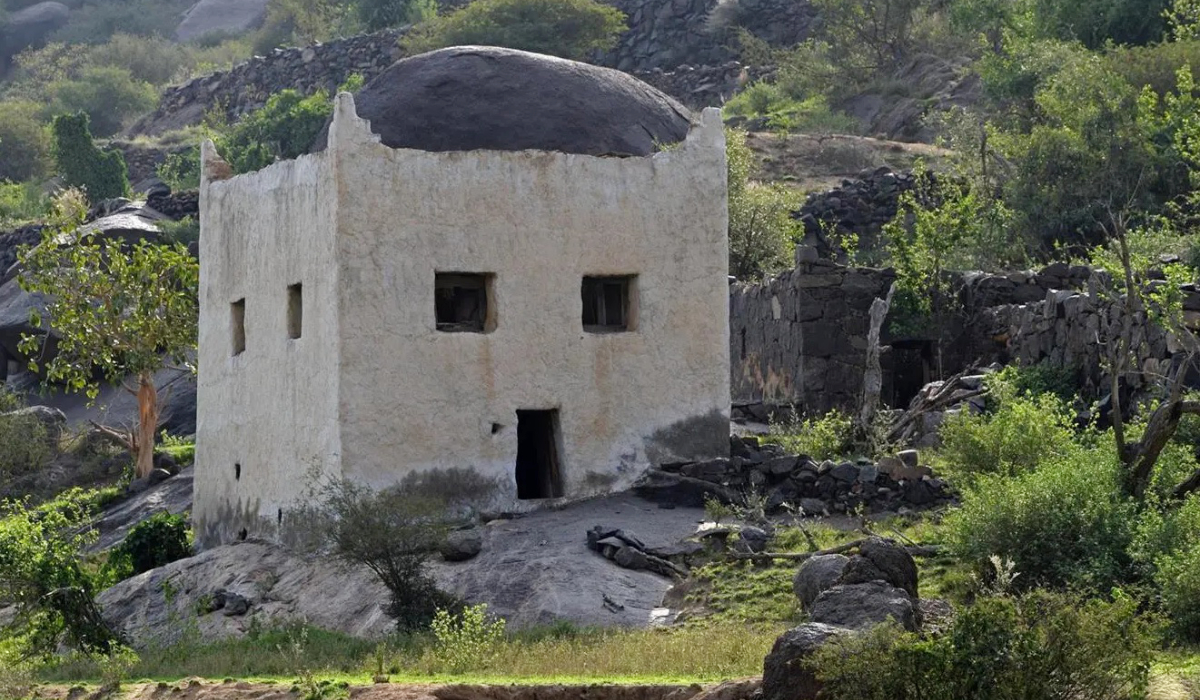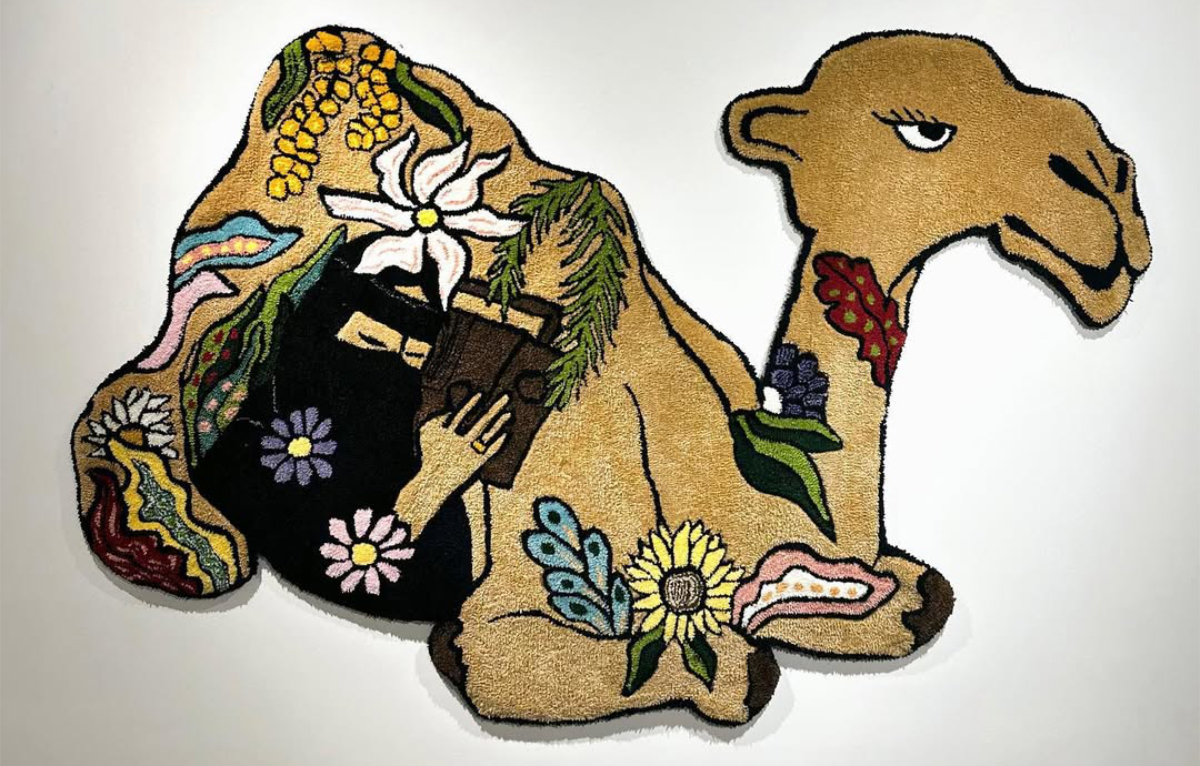ASEER: Intricately designed wooden doors in the Aseer region are more than a mere means of entry for they provide a reflection of the area’s rich artistic heritage.
The doors display exceptional craftsmanship that has been passed down through generations, showcasing the unique skills and creativity of local artisans.
Researchers in architecture highlight these intricately decorated doors as essential components of the area’s architectural heritage.

The Aseer region boasts a vibrant tradition of skilled carpenters who have mastered the craft of creating traditional architectural doors and windows. (SPA)
In an interview with the Saudi Press Agency, Dr. Ali Marzouq, a professor of archaeology and Islamic arts at King Khalid University, spoke of the cultural significance of this art form.
He said: “People find psychological comfort in beautifying their possessions. The decorative motifs typical of Islamic architecture, including engravings and inscriptions, have become integral to building design, enhancing both functionality and aesthetic appeal.”
The artistry involved in carving and engraving wooden doors has elevated them to symbols of social status.
HIGHLIGHTS
• This tradition continues today, with many people updating their door decorations for holidays and special events.
• In the coastal Tihama region, some residents enhance their main entrances by planting aromatic plants, adding a delightful fragrance.
Marzouq said that the main door holds significant importance, serving as a reflection of the owner’s wealth and prestige. Elaborately adorned doors made from high-quality woods are typically found in the homes of the affluent, while simpler designs are more prevalent among average households.

The Aseer region boasts a vibrant tradition of skilled carpenters who have mastered the craft of creating traditional architectural doors and windows. (SPA)
This tradition continues today, with many people updating their door decorations for holidays and special events. In the coastal Tihama region, some residents enhance their main entrances by planting aromatic plants, adding a delightful fragrance.
Decorative elements on wooden doors and windows have been central to the architectural identity of the Arabian Peninsula since ancient times. These embellishments not only highlight the skill of the artisans but also serve as effective marketing for their craftsmanship.
Dr. Saleh Abu Arad, a researcher in the field, echoed Marzouq’s sentiments, emphasizing the significance of the “door and window industry” as a skilled trade that utilized local wood and various techniques to create doors and windows of diverse sizes. These architectural elements are often enriched with exquisite engravings and metal accents, such as handles and rings.

The Aseer region boasts a vibrant tradition of skilled carpenters who have mastered the craft of creating traditional architectural doors and windows. (SPA)
The choice of wood plays a crucial role in the final product’s quality. The talh tree, also known as the red acacia, which is renowned for its dense and cohesive fibers, is favored for crafting high-quality doors and intricate designs.
Carpenters have excelled in engraving beautiful decorations on both exterior and interior doors, utilizing the unique properties of the wood.
Traditionally, the decoration of internal wooden doors and windows is a task undertaken by the housewife, with assistance from female relatives and neighbors. These decorations feature a range of geometric, botanical, and symbolic motifs, contributing to a warm and inviting atmosphere for guests and visitors.
The Aseer region boasts a vibrant tradition of skilled carpenters who have mastered the craft of creating traditional architectural doors and windows. Inspired by their natural environment, these artisans incorporate a diverse array of detailed patterns and botanical designs into their work, intentionally avoiding human or animal imagery.
Researcher Maryam Al-Omari says popular designs often feature geometric shapes such as triangles and diamonds, which are intricately combined to enhance the overall aesthetic.
Acknowledging the significance of safeguarding this area of cultural heritage, the Ministry of Culture republished the works of the French professor Thierry Mouget in 2021. His comprehensive photographic records of southern Saudi Arabia from the 1980s showcase the region’s architectural styles, historical legacies, social dynamics, and customs, shedding light on the rich cultural fabric of the Aseer region.


































